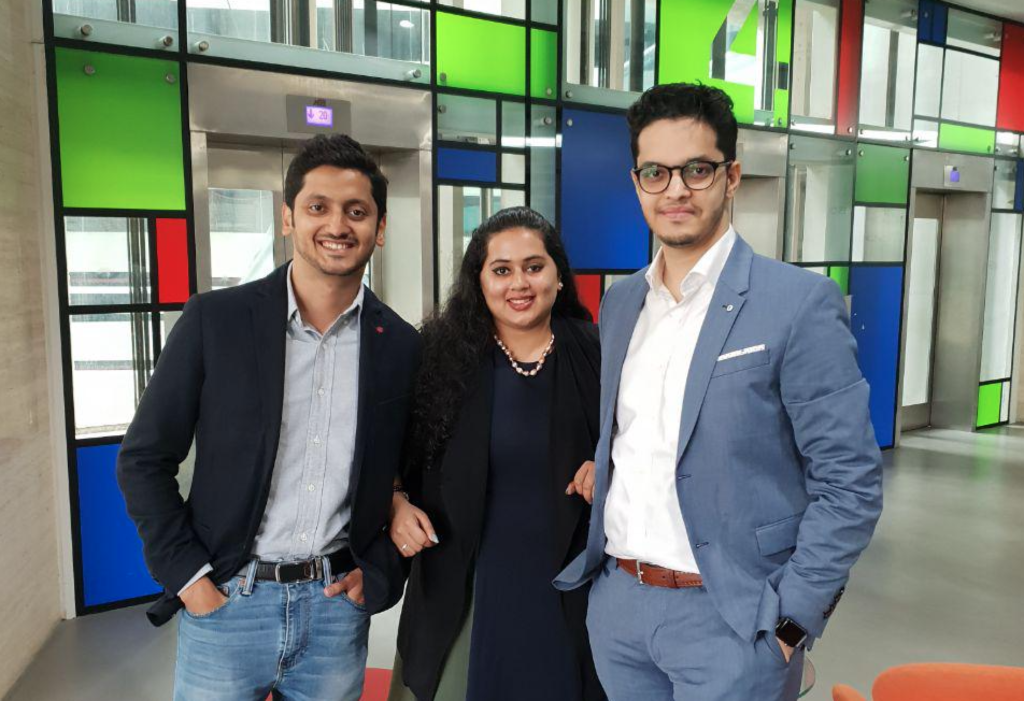
People in the US and UK quite rightly complain about access to justice and the length of time needed to resolve civil disputes. But, now consider India, where a civil case takes 13 years on average and where because of a lack of judges there are 35 million pending cases across the 1.3 billion-strong nation. However, homegrown Indian startup Presolv360 has an answer, and if it catches on it could really change the legal landscape.
Artificial Lawyer recently caught up with Namita Shah, co-founder of Presolv360, a Mumbai-based dispute resolution startup that has been able to reduce the civil dispute time in India to just three months – which in local terms is faster than light compared to ‘normal’ glacial timescales.
Shah and her co-founders’ idea was to create a system whereby businesses sign up to an annual legal insurance policy, accessible online, that inserts a Presolv360 mediation/arbitration clause into their agreement and which can be used to provide a team of free dispute resolution experts who quickly find a way to end the civil case. By doing this they mostly stay clear of the courts and thereby provide clients which a time saving of literally more than a decade.
Now, reading this in the comfort of the US or UK you might think: ‘Over a decade to complete a case? That’s impossible.’ But, consider this. India has 1.3 billion people – and has millions of businesses, landowners and private citizens who end up with no choice but to conduct a civil dispute. And at present there are 40,000 new Civil cases filed in India everyday. To put it simply, legal demand has totally outstripped the supply of court justice.
Artificial Lawyer chatted with Shah to find out some more.
—
When did you start? What was the inspiration?
It seems like yesterday when Bhaven Shah, Aman Sanghavi (my co-founders) and I were in the Supreme Court of India (in 2016) for Bhaven’s father’s litigation which was unresolved for over 30 years.

That matter, in fact, predated our birth. When it was called up for hearing, the Judge (now retired) called Bhaven and said, ‘Son, your father started this case and your child will conclude it‘, and insinuated a settlement. Sitting on that bench that day was when we had our eureka moment.
This was an opportunity presenting itself as a challenge crippling India’s judicial machinery, and we decided to change this, to make dispute resolution efficient, effective and economical in India, and even globally.
We began our journey with an in-depth study of how resolution mechanisms work, right from India’s panchayat system (local setup in villages where disputes are resolved amicably) to international diplomacy. We also undertook an on-foot survey covering courts in Maharashtra to understand the crux of the problem and gained some outstanding insights. All-in-all, our findings were mind boggling.
To give you a gist, there are over 35 million cases pending across Indian courts, which by itself would take over 300 years for disposal if no new case were to be filed. To add to this, 40,000-plus new cases are filed each day in Indian courts. To put things in perspective, if you were to file a case today, in 2020, you can expect a resolution not before 2033, if you get lucky!
Litigation hampers the life of a person – not only in terms of costs, time and resource outflow, but also the mental and emotional toll that it brings along with it, and not to forget the relationships it ruins. We realised that a lack of alternatives to courts and awareness around amicable methods of dispute resolution further aggravate this problem.
Thus was born Presolv360, a platform to resolve disputes and promote trust and harmony, accessible to all at their fingertips!
Presolv360 is a legal-tech start-up which uses a bespoke electronic arbitration and electronic mediation platform that harnesses the power of data and technology to make dispute resolution simple, accessible and systematized.
It specialises in online commercial dispute resolution and offers an insurance-based model that encourages parties to resolve contractual disputes without the need to litigate. Contracting parties pay a nominal annual commitment fee to insure their agreement, and if a dispute arises concerning that agreement, one can resolve the dispute using Presolv360’s platform without any charges or resource outflow.


What stage are you at now?
We have come a long way since our inception, in every way.
I would like to start off by sharing our developments on the software front. The platform and process have undergone the testing phase multiple times to ensure they are free from glitches, full-proof, compliant with domestic and global regulations, and the users have a smooth experience.
Our platform is specifically designed keeping in mind the dual objectives of simplicity and effectiveness. Even a person from a non-legal background can undertake the entire resolution process without having to worry about legal jargons and complex procedures. Email integration is also included at each step for provision of proper guidance.
The allotment of dispute resolution experts, i.e. mediators and arbitrators, is automated using an algorithm to overcome challenges pertaining to bias and partiality. We are also building an ethics-monitoring tool for real-time identification of violations, if any, and taking immediate action.
In terms of creating awareness around the concept of Online Dispute Resolution (ODR) and Alternative Dispute Resolution (ADR) mechanisms and our services, we are constantly working with stakeholders across the country, including the government, to ensure understanding and access even at the remotest of locations.
In terms of our customers, this is the impact we’ve had:
- From taking an average of 13 years for disposal of a case to resolving disputes within an average of 3 months;
- From expending millions of rupees litigating to resolving disputes for under US$20;
- From uncertain outcomes and irreparable loss to certainty of resolution and conserving resources;
- From litigation ruining relations to safeguarding them.
Whilst we are focussed on commercial disputes, the impact is far reaching, by improving the business and investment climate, supporting the ease of doing business and most importantly, bringing access to justice at the fingertips of millions.
Through our ‘Presolv for All’ Project, we provide our services free of cost to the weaker sections.
We are self-funded so far. We are in the process of raising funds to further improve our technologies and resolve disputes within minutes.
How big is the team and also the group of lawyers?
Powered by a team with an unbreakable spirit, our vision of a dispute-free society is at the heart of what we do. In addition to Bhaven, Aman and I, on our journey to accomplish this vision, we are guided by the 3 members on our Board of Advisors who are renowned in the field of dispute resolution.
We would have never made it this far if it wasn’t for our 14 dispute resolution professionals and 4-member tech team – a big thank you and kudos to them! The plan going forward is to welcome more professionals specialising in various domains and an unshakeable commitment to making this world a peaceful place into the Presolv360 family.
How many cases have you resolved, and how many people have signed up for the ‘insurance policy’?
As of today, we have resolved just over a hundred cases, in the domain of money recoveries, insurance claims, commercial disputes, real estate matters, family feuds and inheritance matters, insolvency, consumer complaints and landlord-tenancy disputes – some free of cost and others as paid pilots.
Our services are location and language agnostic and so far we have served clients from Mumbai, Pune, Guwahati, Puducherry, Bengaluru, Dubai, and the UK. When it comes to insuring agreements, we are currently doing pilot projects with NBFCs, MSMEs, digital lending platforms, insurance companies and banks in India.
Looking at Presolv360’s operations and impact, we have been recognised and enlisted by the Department of Justice, Government of India, as a provider of Online Dispute Resolution services in India.
Any facts you have about India’s court system?
India’s court system comprises of 1 Supreme Court, 25 High Courts and 672 District Courts. However, due to a complicated administrative structure, complex procedures and thousands of diverse and archaic laws, the Indian judicial system is considered to be one of the most complex globally. Perhaps these are some of the reasons attributable to the pendency of over 35 million cases in the country.
There are 33 Supreme Court judges, 697 High Court judges and approximately over 16,100 District Court judges in India. Now, this number might sound enough, but believe me when I saw that it is not.
The judge/population ratio stands at a dismal 17 judges per million, i.e. 1 judge for 58,800 people, as against the requirement of at least 50 judges for every 1 million people. This shortage of judges is the very reason why a judge is not able to devote sufficient time deciding a case and data shows that on an average, a High Court or Supreme Court judge spends not more than 5-6 minutes per case per hearing.
This, coupled with other reasons such as insufficient infrastructure, lack of technology integration, and insufficient budgetary allocation, drags a civil litigation filed in an Indian court for 13 years on an average.
The cost of this delay has a ripple effect on the economy & business climate, law and order, security, peace & harmony of the country. And this is exactly what we are revolutionizing!
Thanks, Namita, looks like you are doing important and much-needed work. Good luck to Presolv360!
2 Trackbacks / Pingbacks
Comments are closed.